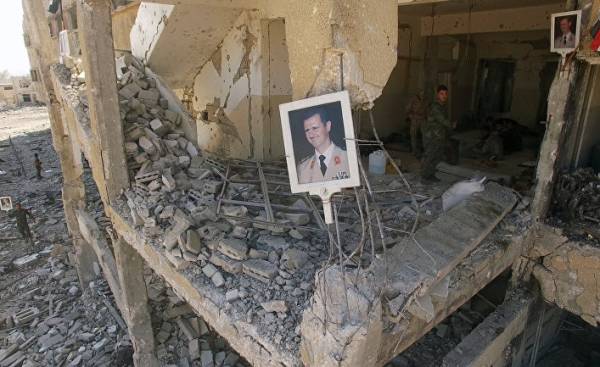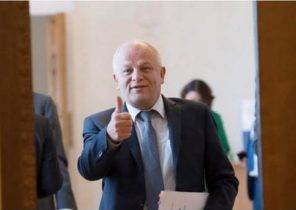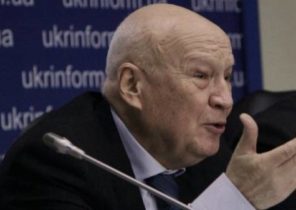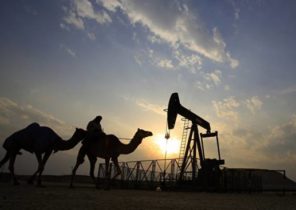
Recent steps by President Bashar al-Assad demonstrated his relationship with the local militia, rising in the majority of his religious affiliation. The question remains, does this mean that he will repeat the path of his predecessor — father? Or the Syrian leader will go the other way in view of the new factors that determine internal situation in Syria?
In recent weeks, Bashar al-Assad is waging a campaign against chaos, the cause of which were the actions of the militias, those, to whose care he has urged from the beginning of the revolutionary movement in 2011. This step has various explanations.
Some believe that what is happening today, due to developments between the late 80s and early 90s years, when the late brother of Bashar al-Assad Basile conducted a RAID against a local militia, members of the so-called “Shabiha”, Pro-government paramilitary group, which included relatives of his father and mother. Opinions regarding the outcome of the campaign vary.
Some believe that she has brought forth the young generation and moved in the direction of the elders. Others believe that Basile has signed an agreement with the high-ranking heads of families “Shabiha” and their units in exchange for the last entry in the business community and elite “of the state of Assad.” Regardless of which explanation is more accurate, campaign against Bassil al-Assad “Shabiha” put an end to confrontation with the main enemy of the ruling family, and here we mean “Muslim Brothers”.
Confrontation with the past explains the use of fighters in the first place, “defence brigades”, led by Rifaat al-Assad, which are funded personally, Hafez Assad, before between them, the struggle for power. Thus, the campaign of Basil al-Assad indicates the stability of the Board of the Assad clan, and the need for control over the armed forces, to restore the image of the “state.” The possibility to regulate the situation in the country and the lack of manifestations of independence is the key to the preservation of the state, in other words, it is a necessary requirement for the survival of any middle Eastern regime.
Apparently, the last time Bashar al-Assad is trying hard to fight following the example of his father and brother, to eradicate any manifestations of disobedience to the Syrian regime and reduce the signs of “failure” of the Syrian state. All of this will be the first step on the road to recovery the state which has created France, the most serious opponent of the regime in the West. The Assad regime has no legitimate alternatives in Syria.
The previous conclusion leads us to two questions. Does this mean that today Assad feels safe because nothing posed a serious threat to his power. Or it means that Assad could end the chaos in their country, as did his father and brother in the past and under what conditions he will have to act?
The answer to the first question can be seen in the activities of Bashar Assad, which reached its peak during the holiday of Eid al-Fitr, when he went to Hama and visited nearby villages. On this day, Western media, first and foremost, Reuters reported that Assad for the first time since 2011 launched activities outside of the capital, Damascus.
© RIA Novosti, Eduard Dogs | go to photomontages Assad
As for the second question, it remains open, as the conditions facing al-Assad is much more complicated than they were during the reign of his father. In addition to the militias, including his relatives, have the armed forces, the leaders of which have no relationship to the family of Assad, but nevertheless enjoying the popularity and influence among a large number of Syrians. Among them are a detachment of the “Tiger”, the leader of which is Suhail al-Hassan. Do not forget about foreign forces, Iranian, and Russian, which have a final say in the fate of the Assad regime.
If we remember past experiences, we see that in order to regain control of the militias, the father Assad took more than ten years, until 1998, when regime forces attacked a detachment of Rifaat al-Assad in the port of Latakia.
This means that the son Assad is on a risky path, and for success it could take him ten years to finally regain power in the state. Perhaps he will adopt a new strategy, and the business will become an alternative to the “Shabiha”. As for the foreign volunteers, it is likely that they will get their own zone of influence. Thus, we can expect in the future that the center of the Syrian capital will be entirely in the hands of the Ministry of internal Affairs, as it was prior to the events of 2011. However, if we move a bit away from the centre of the capital, even, for example, the mosque Seyidov Zainab will be under the control of the Iranians. Thus, at best, Assad will not be able to repeat the path of his father in improving domestic sovereignty. The most that can be achieved, so that large areas of territory that remain outside the sphere of his influence. In these areas the situation will be control of Iranian and Russian forces. They will become a stronghold of armed groups, control over which is created a special Department.
Thus, there is no reason to believe that Assad will be able to prevent the destruction of the Syrian state, having established its control over all its territory. On the contrary, a large part of this area will depend on external control. Nevertheless, we must recognize that he is the son of Hafez al-Assad. This is enough to establish control over the capital and large cities and stop the lawlessness. Even this modest challenge will require Assad making a long and risky measures.







